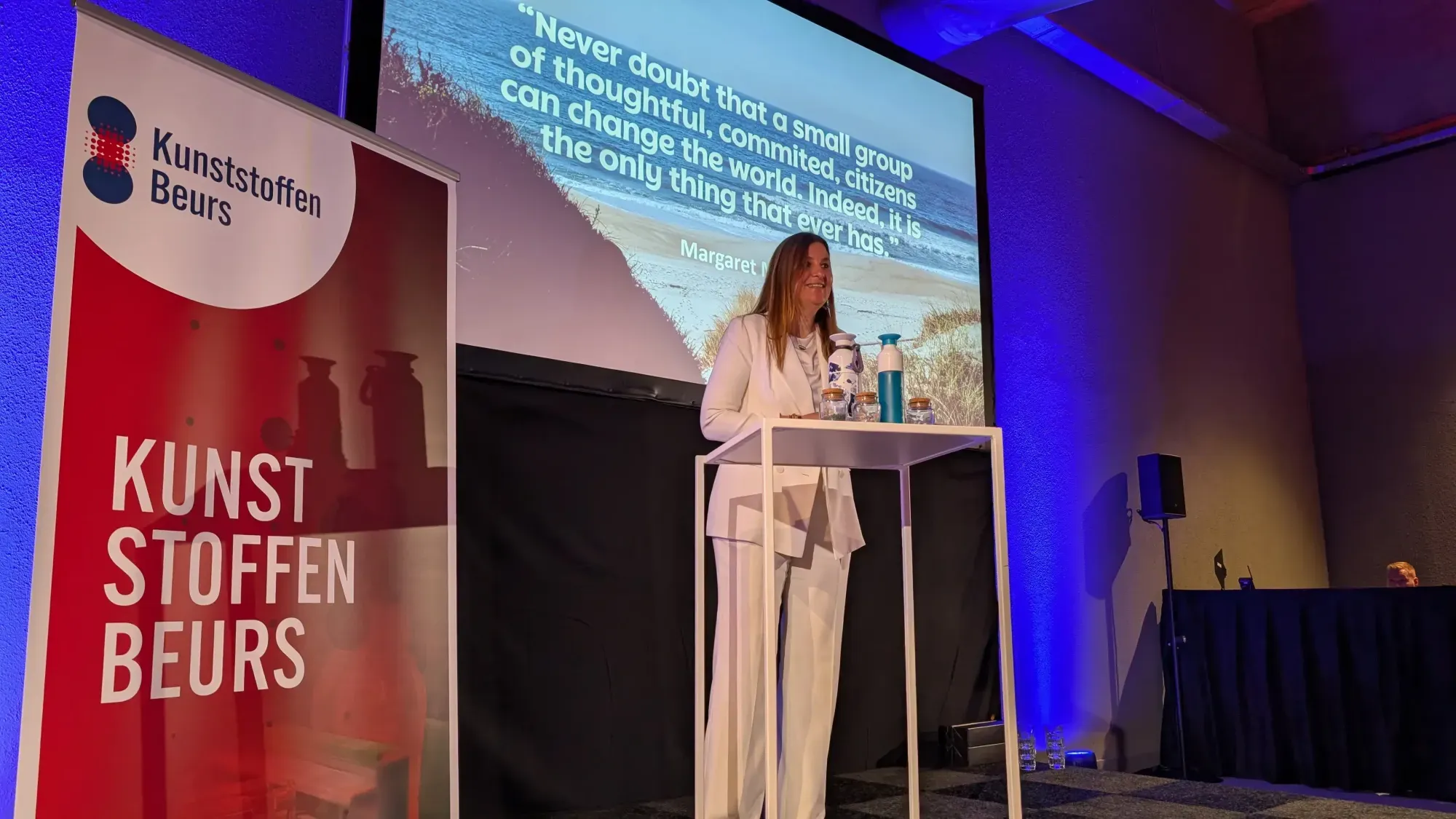The meeting point for the plastics chain in the Benelux shows the ambitions and obstacles around circular plastic.
.
The annual Kunststoffenbeurs in the Brabanthallen in Den Bosch has for years been considered the meeting point for the plastics chain in the Benelux. From material suppliers and machine builders to designers, recyclers and brand owners, the entire chain is present to share knowledge and showcase innovations. In recent years, sustainability has been an increasingly important theme, but this edition, once again put on by Mikrocenter, takes the crown: really everything revolves around the transition to circularity.
For a visitor, then, there is no escaping it: cries such as "Recycling is not circularity," "This is how we achieve circularity" and even "This is green serendipity" are visible on every corner of every aisle. At the same time, there is realism. Whoever you speak to, the message is that circularity is achievable, that we need to do it, but also that there are still a lot of obstacles. The government as the party that needs to move on that is therefore never far away.
This was also evident during the lecture by Thor Tummers of Unilever. The company sells products that are used daily by 3.4 billion people. That very scale makes the impact of choices great, but also brings limitations. "We are a big company, but not so big that we can make the transition to circular plastic on our own," Tummers argues.
He points to the tension surrounding the green premium: recyclate is more expensive than virgin plastic. Although consumers indicate in surveys that they are willing to pay for sustainability, reality proves unruly. "Consumers say: I want sustainable products and I am willing to pay more. But in practice that extra price is still a barrier," Tummers said.
.He believes the key lies in collective action. Unilever is working on design for sustainability and above-legal pilots, but stresses that legislation and industry-wide agreements are crucial. "Our model is 'Raising the Floor, Lifting the Ceiling': legislation forces the market up, while we launch our own projects to accelerate innovation," he said. In short: the government must step in. Only then, according to Tummers, can the green premium come down, and circular plastic can really scale up.